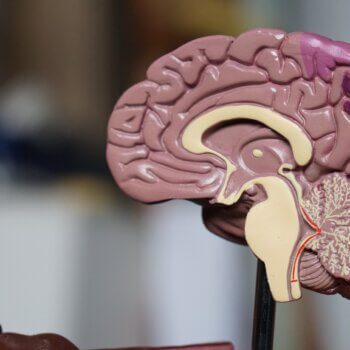Digital is a word over-used and under-understood. What does it mean in context with Transformation?
Digital Transformation. What is it? “Transformation” is what the Corporate Rebels said, but it’s a rare person who can give you a straight answer about the meaning of “Digital”. Tom Loosemore said this:
It’s a great definition. I think we can go further and understand the why. Why is it the internet-era is producing these transformative cultures, practices and technologies?
If Digital were a fad it would fizzle out, but it’s alive and growing, so there must be a deeper note playing here. We see seismic changes flowing through our societies and economies, our public institutions and our personal lives.
Individuals and consumer technology have led the way and organisations are realising they urgently need transformation if they’re to survive and thrive in a digital world because former best practice is incompatible with the operating system of a Digital world.
So, what’s Digital?
Digital is: information automation
The phrase “information automation” is a super-pithy definition of Digital. It needs some explanation so let’s unpack it:
To explain what that means, let’s look to the Industrial Revolution for parallels.
The industrial Revolution
The industrial Revolution released massive economic and human value by automating physical tasks. From tractors to steam engines to factories to washing machines, more could be achieved by fewer people in less time. It transformed societies and organisations and is now invisibly woven into the fabric of our lives.
To quote Wikipedia, “this transition included going from hand production methods to machines”. It’s a small statement, but it goes to the heart of the indistrial — and digital — revolutions.
Mechanisation of tasks previously carried out by hand allowed our time and effort to go so much further and release potential value, driving huge change in society, and massive economic growth. There was both pain an opportunity in the change, but in the end we’ve come a long way through it.
The digital revolution
Now apply this to information. Automating the flow of information, from buyer to seller, from citizen to government from hungry traveler to TripAdvisor, from lost driver to Waze, and back again. Digitisation allows our time to go so much further.
Digital is the labour-saving device for information
I can now travel to a foreign country with little more than a smartphone. That was nearly impossible before the digital revolution. A decade ago it would have been time consuming to arrange and we were limited in terms of what could be discovered and experienced.
From flights, transport and hotels, to maps, restaurants and weather, to language learning and translation, discovering local history and finding a local guide, information flows back and forth in a dazzling kaleidoscope that transforms the way we communicate and connect with people, places and pretty much anything about which there’s information.
When it’s good, we can discover what’s on offer and meet our needs in a fraction of the time. Friction, effort, uncertainty and guesswork melt away and we’re able to focus our time and energy on things that matter to us.
Practical Digital
Wherever information is exchanged there’s likely value in automating that exchange. Saving human time reduces repetitive tasks and allows people to dedicate their time to creating new value. The robots are coming, and that’s a good thing. We’ll have less makework and more creative industry. There’ll be change, but overall we’ll come a long way through it.
Whether it’s businesses providing data automatically to the Office for National Statistics, transferring money to a friend after a meal out, updating the address on your driving license, or finding and buying a present for someone you care about, it’s about reducing the legwork and focusing your time on what matters in those moments: building a business, taking a road trip or enjoying a birthday evening out with someone you care about.
Do you remember going to a travel agent to buy a plane ticket? Queueing at the post office through lunch to get a tax disc? Doing a paper tax return? If you’ve experienced any of these you’ll have felt joy the moment they no longer weighed on your time. That’s Information Automation.
Many people have never experienced these things and would balk at the idea of them. That’s not “millennials”, that’s a better world. Imperfect, but better. Consider that a significant proportion of the workforce in our organisations today have never known a world without the internet. Like the moon landing, for many it’s hard to conceive of a world where it isn’t a given.
The Digital imperative
To quote Wikipedia on the Industrial Revolution, “By the mid-18th century Britain was the world’s leading commercial nation”. In the same way, Digital is now fundamental to leadership on the world stage. If our government institutions are culturally and structurally unable to transform, power and relevance will continue its quiet transfer to the individuals, businesses and nations that can.
I feel privileged that my lifetime has spanned the arrival of early home computers, through the birth of the Internet, to our developing Digital world. It’s a fascinating time to be alive and the opportunities, as yet unfathomed, of releasing people’s time to create things we’ve not yet imagined is tantalising.
The digital revolution is here. Information Automation is a great way to respect and value people’s time — and go on to give society a springboard to innovation. That’s Digital. That’s a message of hope.
About the Author
This article was written by David Carboni, Co-Founder of NotBinary. See more.





























